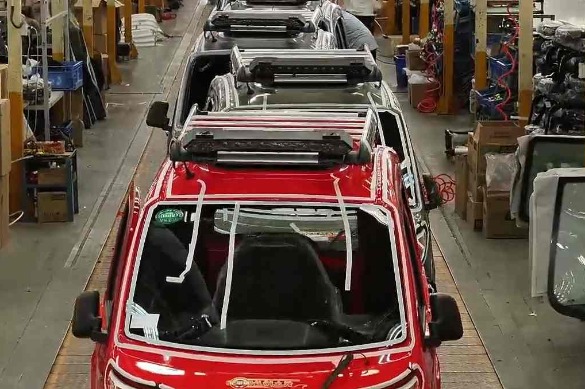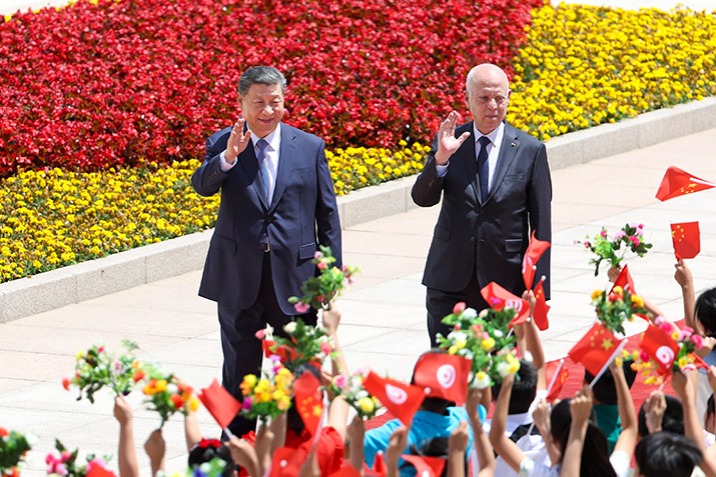From croupiers to space engineers


Young Macao residents' dreams to become the nation's space engineers could be realized.
The Guangdong-Macao In-Depth Cooperation Zone on Hengqin Island has injected fresh impetus into Macao's economic diversification by creating new resources and potential for growth beyond its traditional sectors. The Macao Special Administrative Region's push into the aerospace business is offering more opportunities for its younger generation.
As the SAR strives to shake off its longstanding reliance on the gaming-centric economy, its foray into the aerospace field could pave the way for young professionals to take off in stark contrast to the more down-to-earth career prospects available within once dominated by the casino and lottery business, says Guo Dawei, senior engineer at the Macau Institute of Development and Quality.
As one of the leaders at the Research and Development Centre for Hengqin Aerospace Engineering Equipment, Guo is spearheading a government-backed initiative that could propel Macao into cutting-edge aerospace technology. He oversees the development of efficient technologies and equipment for large-scale spacecraft. This highly specialized field demands a diverse range of expertise, such as thermodynamics, fluid dynamics, materials science, mechanical design and integrated circuits.
According to Guo, the workforce of the research center, which was established in November, is mainly composed of Macao residents, with some 60 percent of them from the SAR. The staff makeup "exemplifies Macao's commitment to nurturing local talent," says Guo. "It offers high-quality career opportunities for Macao's young people in the Hengqin cooperation zone."
The center is backed by IDQ Science and Technology (Hengqin, Guangdong) Co - a wholly-owned subsidiary of the IDQ. These two entities share a state-of-the-art research facility that spans seven buildings, with a total area of about 2,400 square meters, within the Hengqin cooperation zone.
The company, collaborating with the research center, focuses on the research and development of applied technologies, followed by the testing of proof-of-concept models. Once these models have undergone rigorous evaluation and demonstrated their viability, the company delivers them to manufacturers to churn out in the zone.

"Graduates of electromechanical engineering have often faced limited career paths," says Guo, who has devoted more than a decade to the field, earning his bachelor's, master's and doctoral degrees at the University of Macau.
"Aside from those pursuing further studies abroad or in Hong Kong, many find that their options are confined to positions related to the pervasive gaming industry or general engineering tasks, such as air conditioning maintenance or basic drafting work," he notes, adding that the reality underscores a core issue - Macao lacks the infrastructure and land necessary for spacecraft-component manufacturing, shutting out an entire field of professional engagement for local talent.
However, the Hengqin cooperation zone and the establishment of the aerospace research center have raised a beacon of hope. They are expected to contribute to diversifying career paths for Macao's young generation as the city opens the door to an aeronautics supply chain that had previously been nonexistent.
According to Guo, Macao's competitive edge in developing the aerospace sector lies in its education. "The electromechanical engineering program at our university maintains an average class size of 30 students, fostering a personalized educational environment."
Besides, the curriculum is extensive and well-rounded. "Our graduates enter the workforce with a cross-functional understanding. It allows them to discern interdisciplinary connections that are easily overlooked," says Guo. "The initial knowledge may be broad, but the ability to rapidly acquire new domain-specific expertise becomes significant in the professional realm."
The Hengqin cooperation zone, set up in 2021 on a small island that belongs to the Chinese mainland city of Zhuhai in Guangdong province, aims at trimming Macao's reliance on its gaming sector by attracting businesses in fields like scientific and technological research, high-end manufacturing, and traditional Chinese medicine. By the end of last year, about 11,500 Macao residents were working or living there.
For Macao residents planning to work in the Hengqin cooperation zone, a bounty of financial incentives awaits them. The zone caps the income tax rate at 15 percent for professionals with specialized and in-demand skills, and successful candidates are entitled to monthly subsidies of between 5,000 yuan ($690) and 12,000 yuan for up to 36 months.
- Former Shandon political advisor imprisoned for accepting bribes
- Australia launches studies program for China-Australia exchange
- Harbin Institute of Technology celebrates group student wedding with special diamonds
- Beijing hospital promotes clinical trial awareness and participation
- Community cinema: open-air magic in Yinchuan nights
- Drone captures rare moment: Porpoises frolic at sea


































